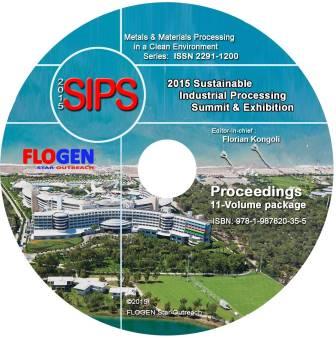2015-Sustainable Industrial Processing Summit
SIPS 2015 Volume 4: Meech Intl. Symp. / Mining Operations
| Editors: | Kongoli F, Veiga MM, Anderson C |
| Publisher: | Flogen Star OUTREACH |
| Publication Year: | 2015 |
| Pages: | 275 pages |
| ISBN: | 978-1-987820-27-0 |
| ISSN: | 2291-1227 (Metals and Materials Processing in a Clean Environment Series) |

< CD shopping page
Mercury Use in Artisanal Mining in Antioquia, Colombia: An Anthropological Perspective
Thomas Robertson1;1MASSEY UNIVERSITY, Palmerston North, New Zealand;
Type of Paper: Regular
Id Paper: 478
Topic: 4
Abstract:
Current discourses on reducing mercury use in artisanal gold mining suggest the need for greater attention to the social dynamics of miners, and the cultural, political and economic aspects of mining. While social anthropology is well-positioned to meet this need, to date, anthropologists have given the subject limited attention. This paper presents preliminary conclusions from the author's research to highlight the potential role of anthropology in attending to artisanal mining as a subject of enquiry. This research is based on three months of qualitative ethnographic fieldwork in Antioquia, Colombia, using participant observation, semi structured interviews and visual anthropology techniques. A post-humanist theoretical approach allowed the researcher to examine the roles of human and non-human actors in mining networks. Following mercury as the primary actor reveals social, political, and technical impacts including those of ethnicity and gender. This study aims to bridge current mining ethnographies (which focus on artisanal miners but not the activity nor the materiality of mining), and scientific and technical discourses (which focus on mining and its materiality, but not miners). This more inclusive, nuanced and relational approach to the networks created by artisanal mining may contribute to the development of culturally and contextually appropriate mining policies and practices.